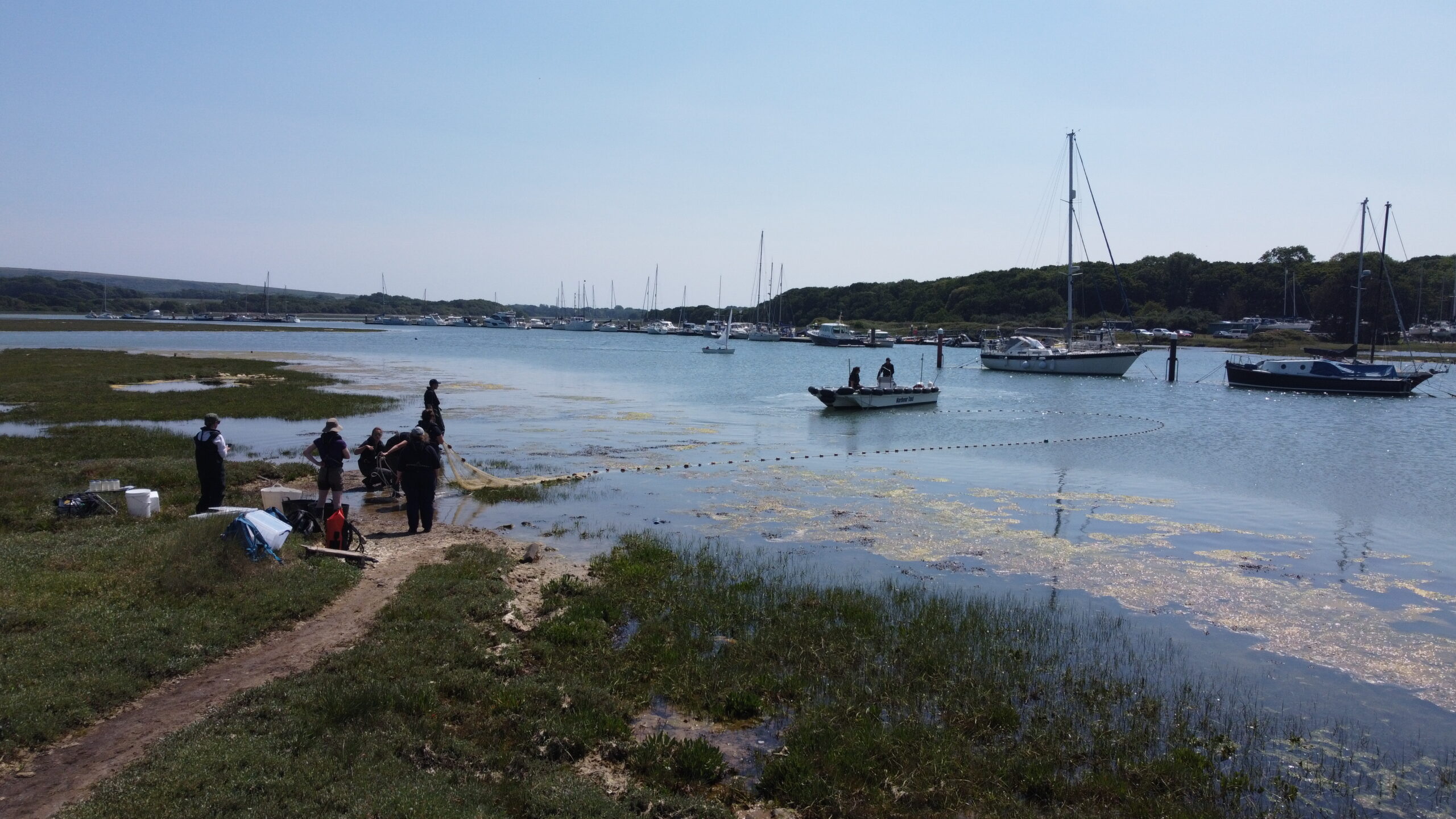
Marine
Recreational Anglers Team Up with Scientists and Managers on Underwater Camera Project
Working with recreational angling stakeholders, a fascinating project is underway that aims to improve our understanding of juvenile fish habitats in the southwest of England’s coasts and estuaries via a network of underwater cameras.
Led by Dr. Ben Ciotti of the University of Plymouth, project partners include stakeholders across the recreational angling and fisheries management, including the Angling Trust, Bass Anglers Sportfishing Society, National Mullet Club, Association of Inshore Fisheries and Conservation Authorities, Southern Inshore Fisheries and Conservation Authority, and Institute of Fisheries Management.
Thanks to funding from the UK Government, the partnership will deploy underwater cameras in key habitats within three estuaries – Fal/Helford, Tamar and Fleet – to learn more about the preferred habitat of recreationally important species, like bass and grey mullet, during their juvenile life stages.
By using new technology called the Juvenile Habitat Monitoring Camera (JHaM-Cam), we will be able to film the smallest juvenile life-stages of fish and measure their abundance and size in the wild. Understanding these early life stages and their habitat use are vital for the future of the fishery and ensuring healthy, sustainable stocks of these recreationally important species.
This smart underwater camera system will be placed in the Plymouth Sound Marine National Park and surrounding areas, with the help of state-of-the-art scientific diving facilities at the University of Plymouth.
And here’s where you come in – we are developing an interactive web portal that allows recreational anglers like you to support the video analysis through citizen science. Your valuable contributions will provide critical information about fish living in different habitats. As part of this exciting initiative, you will have the opportunity to access training in fish identification and monitoring techniques. This will enable you to become an active participant in fish research in the future. Sign up here to be the first to know when the portal goes live and how to join our information webinar later in the year.
The project has received substantial funding of £530,000 and is one of twelve projects designed to support sustainable fisheries management under the Fisheries Industry Science Partnership (FISP) scheme, part of the UK Seafood Fund. The Angling Trust are partners on three other FISP projects: Catchwise, Pollack FISPand Angling for Sustainability
The development of the JHaM-Cam, which has been supported by the Marine Management Organisation and Natural England, is being led by researchers at the University of Plymouth.
Dr. Oliver Tills, the leader of the University’s EmbryoPhenomics research group and a Researcher in Residence at Plymouth Science Park, is driving the creation of this network of innovative camera instruments. The project will leverage the Science Park’s expertise in digital additive manufacture and the EmbryoPhenomics group’s experience in deep learning, computer vision, and environmental sensing.
This project is yet another example of the value of collaborations with the recreational angling sector to advance our knowledge and understanding of recreationally important species and the environment they depend on to improve the future of our sport and sustainable fisheries.
Image Credit: Emily Condie @ Southern IFCA
You might also like

SENSAS FUTURE NETWORKS DO THE DOUBLE DOUBLE IN YOUTH…

NATIONAL GLORY FOR RAMMY AT LINDHOLME

Three British record fish claims ratified

Making plans for kids and holiday activities? Fun, safe…

Get Fishing Fund – Funded Project: Fishing Opens New…

Climate change fuelling dangerous river pollution across England and…

NEW BLOG: The best thing about fishing – from…

Ethan gets his Gold Get Fishing Award – young…

Summer of Fishing 2025 is here – get into…

Get Fishing Awards were at Bristol Festival of Nature…

VIDEO: It’s not all about the fishing… Check out…

ENGLAND TAKE GOLD IN HOME NATIONS BOAT CHAMPS

SENSAS FUTURE NETWORKS DO THE DOUBLE DOUBLE IN YOUTH…

NATIONAL GLORY FOR RAMMY AT LINDHOLME

Three British record fish claims ratified

Making plans for kids and holiday activities? Fun, safe…

Get Fishing Fund – Funded Project: Fishing Opens New…

Climate change fuelling dangerous river pollution across England and…

NEW BLOG: The best thing about fishing – from…

Ethan gets his Gold Get Fishing Award – young…

Summer of Fishing 2025 is here – get into…

Get Fishing Awards were at Bristol Festival of Nature…

VIDEO: It’s not all about the fishing… Check out…

ENGLAND TAKE GOLD IN HOME NATIONS BOAT CHAMPS

SENSAS FUTURE NETWORKS DO THE DOUBLE DOUBLE IN YOUTH…

NATIONAL GLORY FOR RAMMY AT LINDHOLME

Three British record fish claims ratified

Making plans for kids and holiday activities? Fun, safe…

Get Fishing Fund – Funded Project: Fishing Opens New…

Climate change fuelling dangerous river pollution across England and…

NEW BLOG: The best thing about fishing – from…

Ethan gets his Gold Get Fishing Award – young…

Summer of Fishing 2025 is here – get into…

Get Fishing Awards were at Bristol Festival of Nature…

VIDEO: It’s not all about the fishing… Check out…









